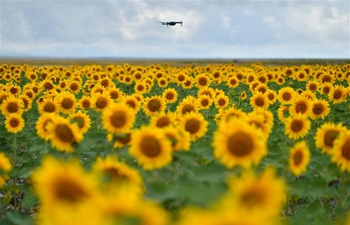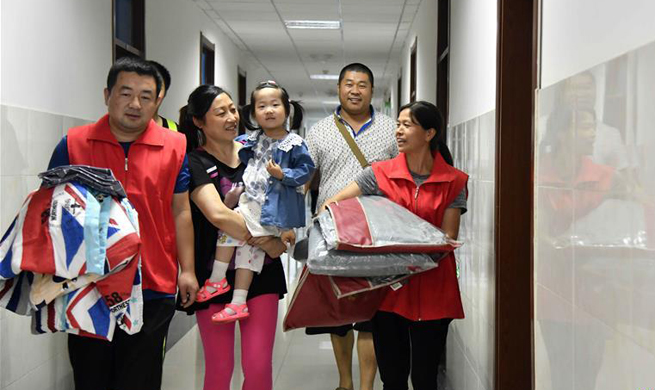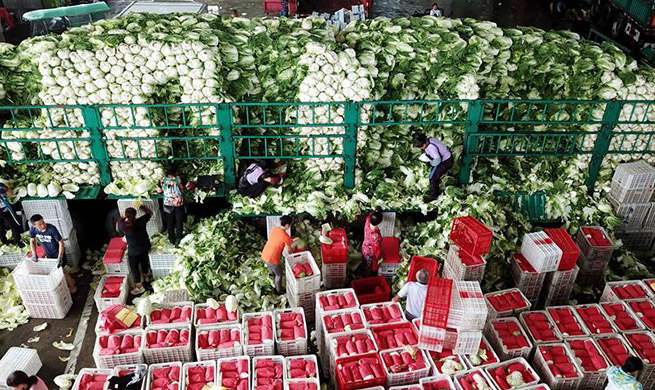NAIROBI, Aug. 13 (Xinhua) -- Kenya will increase funding for research as part of efforts to boost food security in the country, a senior government official said on Tuesday.
Deputy President William Ruto said the move will also boost the quality of information and ultimately inform proper planning.
"I am happy to note that the government of Kenya has fully embraced digital data and information to help the country fast-track achievement of the Big 4 Agenda," Ruto told participants at the Regional Centre for Mapping of Resources for Development (RCMRD) International Conference and the 4th AfriGEO Symposium.
"Through applications developed at RCMRD, in collaboration with partners, we can now monitor crop conditions from planting to harvesting, and thus help the country plan well on food security for its people," said Ruto.
"Through geo-spatial technologies, I challenge you to further seek solutions to the problem of food distribution and market systems in the region, to not only foster efficient trade, but also ensure that a Kenyan should not die of hunger when there is a surplus in a neighboring country, or even county," he added.
The deputy president said lack of right information and a supply of stale information continued to haunt the turnaround of Africa and urged conference participants to use innovations in geo-spatial technologies to project and plan for the needs of the people.
"I am pleasantly informed that our neighbors in Rwanda have embraced drone technology to provide essential health services such as delivery of medical supplies," said Ruto.
Such examples, he said, inspire other countries to see that Earth observation and responsible use of space should drive Africa's inquisitiveness to seek solutions for problems facing communities.
Ruto said scientists need to partner with the government and public institutions in producing accurate data that can guide the development of Africa.
Farida Karoney, cabinet secretary of Kenya's Ministry of Lands and Physical Planning, said science and innovation should be at the center of tackling challenges facing Africa, adding that technology was a crucial player in the attainment of the sustainable development goals.
"Crucially, it is these research-backed data that would drive the Big Four Agenda in Kenya. I see a clear linkage between accessibility of education for societal benefit and the information streams derived from Earth observation technologies," Karoney said.
She said geo-spatial science and technology is already playing a central role in the daily decisions as well as national endeavors to attain development goals.
"I need not emphasize how Earth observation is transforming decisions in transport, agriculture, wildlife management among others. We must strive for improved management of our land resources with technologies that ease our field operations for data acquisition, storage, and analysis, and make it practical for us to engage in constructive dialogue with our communities in planning for land use," Karoney said.













